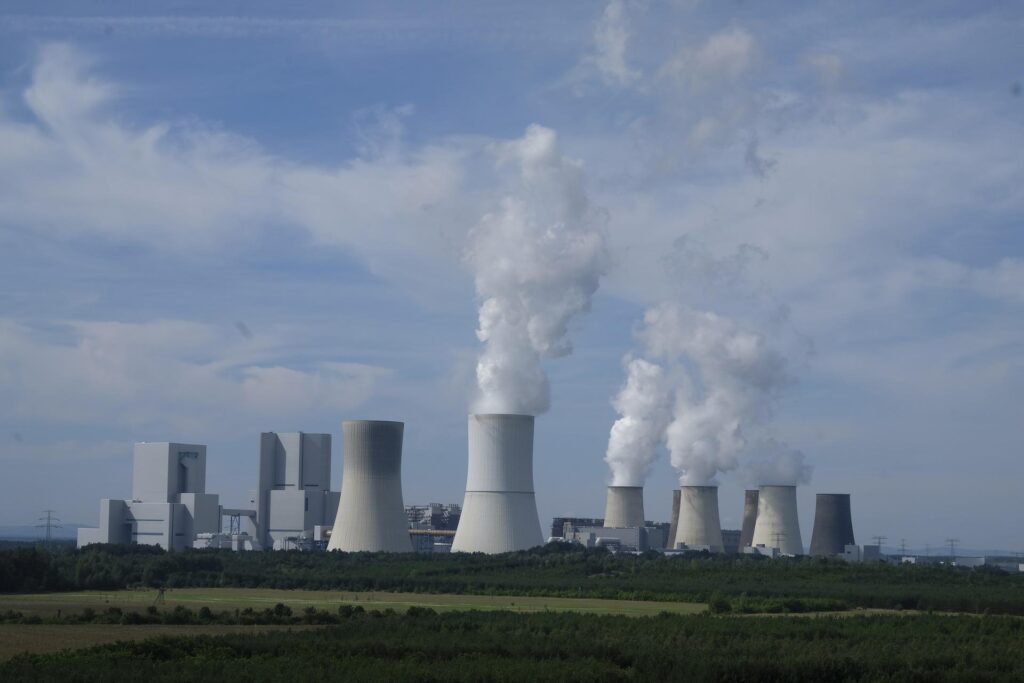Egypt’s government has ambitions to significantly increase eco-friendly (green) investments. Hala El-Said, the minister of planning and economic development, announced plans for government-led green projects to account for 30% of all state projects by 2030. The government also is talking up incentives for private sector eco-friendly projects.
Egypt has most of the necessary resources and political will to realize its green goals. Andrew Forrest, executive chairman of Fortescue Future Industries, a green energy company, told fDi Intelligences, a specialized portal, in October, “Egypt is on the way to becoming a global powerhouse in the green energy value chain.”
Supporting those high-growth prospects are an increasing number of large-scale international investors gradually shifting their priorities to sustainable and green projects. There also is an increased awareness among local consumers. PricewaterhouseCoopers’ latest Global Consumer Insights survey shows 76% of Egyptians are willing to pay more for eco-friendly products.
However, that shift has its risks. With this interest comes a risk of “greenwashing,” where a company misrepresents its green credentials, the Australian Securities & Investment Commission (ASIC), a government body, said in a June 2022 statement. “It can erode investor confidence in the markets for sustainability-related products and poses a threat to fair and efficient financial systems.”
Greening Egypt
Egypt focuses on energy from renewable sources and those with the lowest emissions possible. “The renewable drive underway in Egypt is … a central plank of its opening up to foreign investment,” noted Krisjanis Krustins, director of Fitch Ratings.
Green energy projects in Egypt include phasing out oil-powered cars and machines in factories and vehicles for natural gas — the cleanest fossil fuel. The country generates 31% of its electricity from solar, wind and other renewable sources, with plans to reach 42% by 2035.
“The government designed a very good initiative where there is this huge framework around locations and regulations for renewable energy, and private sector money has poured in,” Tarek Abdel Rahman, managing partner at Compass Capital, told Euromoney,
In the long term, the government wants investments in projects that convert hydrogen to fuel using eco-friendly methods (green hydrogen). It sees that as the fuel of the future since it has zero emissions and could power high-energy consumption buildings and equipment that solar and wind energy can’t.
The IMF said in a paper published in December that in 2022 Egypt had “investment pledges of more than $40 billion alone for green hydrogen and green ammonia … No continent has better technical potential for producing cheap green hydrogen than Africa.”
The Suez Canal Zone may bring together “a lot of the factors that could [turn] Egypt into a very successful player in [the green hydrogen] space,” Krustins told Euromoney in November. That prediction is based on the fact that the Suez Canal carries nearly 12% of global seaborne freight. “Egypt has all the prerequisites to become a green hydrogen giant.”
The government also promotes investment to tackle rising sea levels, sustainable agriculture and protecting arable land. “For millennia, Egypt has depended on the Nile and its delta as the source of irrigation and fertility for its civilization, and agriculture remains a vital sector in its economy [11.83% of GDP in 2021,] according to the Central Bank.
To align state efforts to attract eco-conscious investors, the government announced the creation of the Council for Climate Change in September. Meanwhile, the Ministry of Finance and CIB, the biggest listed bank on EGX by market capitalization, issued bonds that exclusively finance green projects in 2020 and 2021, respectively.
Euromoney expects more issuances, particularly from banks, to fuel Egypt’s green transition. At press time, there has been no indication of additional green bond issuances.

Potential pitfall
One buzzword synonymous with green investments is greenwashing. Investopedia, a glossary of financial terms, defines it as “the process of conveying a false impression or misleading information about how a company’s products are environmentally sound.”
According to the EU’s European Banking Authority, “greenwashing can occur at the entity level [strategy or performance], product level … or service level, including advice and payment services.”
The document also noted it can “occur at any point where sustainability-related statements, declarations or communications are made.” That includes manufacturing, delivery, marketing and sales. Greenwashing also could happen with “the investment value chain.” That includes license issuers, rating providers and investment firms.
An early example of greenwashing appeared in the 1960s when hotels “placed notices in … rooms asking guests to reuse towels to save the environment,” Adam Hayes, assistant professor of economic sociology at the Hebrew University of Jerusalem, wrote on Investopedia in November. “Hotels enjoyed the benefit of lower laundry costs,” while not reducing emissions during the cleaning process.
Other examples are a firm that focuses on decreasing emissions only in a specific part of its business or a company that uses fossil fuels to produce recyclable packaging.
Some organizations merely talk about reducing emissions to the media and public, without doing anything on the ground. “Companies have engaged in greenwashing via press releases and commercials touting their clean energy or pollution reduction efforts,” said Hayes. “In reality, the company may not be making a meaningful commitment to green initiatives.”
TerraChoice, an environmental consulting division of scientific research firm UL enterprise, also said some companies use fictional environmental certifications from nonexistent third parties; others falsely claim they are certified by authentic agencies.
Greenwashing also includes designing and selling “renamed, rebranded, or repackaged” products that hint at eco-friendly or sustainability credentials. Hayes said the most common greenwashing technique is using labels such as “eco-friendly,” “sustainable, “recyclable,” or “recycled” on the packaging.
TerraChoice also cited language such as “all-natural” or “eco-friendly” which can be misleadingly “fluffy” and vague.
Hayes added some companies “bury environmentally unsound practices in the fine print.” Other companies also could use or issue biased reports as proof of their eco-credentials to the public and business partners.
“Companies that have something to hide … often make it harder for consumers to check out their eco-credentials,” Sue Davies, head of consumer protection policy at Which?, a U.K. nonprofit, told the BBC in November 2021,
Robeco, a developer of eco-friendly solutions, noted that asset managers might be implicated in greenwashing by “making a small gesture toward sustainability” in one investment while not applying the same standards to the rest of their portfolios.
David Barmes, a senior economist at Positive Money, a U.K. nonprofit, said companies and governments promoting eco-friendly projects to offset harmful emissions could be classified as greenwashing. “Carbon offsetting … allows firms to claim they’re meeting emissions targets, while they continuously pump emissions in the air,” Barnes told the BBC in November 2021. “The whole point of offsets is to allow these corporations to keep emitting with impunity and governments to claim they are meeting targets.”

Regulating greenwashing
Associating companies or governments with greenwashing “can seriously damage reputations and brands,” said Hayes, the economic sociology professor. “It is deceitful and unethical because it misleads investors and consumers who genuinely seek environmentally friendly companies or products.”
The main reason why some companies resort to greenwashing is more profit. “Often, green products can be sold at a premium,” Hayes said. Accordingly, greenwashing could constitute a crime, with government agencies like the Consumer Protection Authority in Egypt prosecuting cases of false labeling.
Greenwashing in Australia falls under Corporations Act 2001 and the Australian Securities and Investments Commission (ASIC) Act 2001. Those two laws “contain general prohibitions against a person making statements (or disseminating information) that are false or misleading, or engaging in dishonest, misleading or deceptive conduct,” the ASIC website says.
The Australian government recognizes international anti-greenwashing standards, such as the Financial Stability Board’s Task Force on Climate-related Financial Disclosures. Its “recommendations on climate-related financial disclosures are adaptable to organizations across sectors and jurisdictions,” it said on its website. Their work centers on “how organizations operate, governance, strategy, risk management, and metrics and targets.”
The ASIC also recognizes the International Sustainability Board, which proposes standards on climate and general sustainability-related disclosures.
Other governments have explicit anti-green-washing narratives. Hayes said the U.S. Federal Trade Commission offers guidelines and illustrations on differentiating genuine green products from greenwashed ones.
The U.S. Securities and Exchange Commission recently closed a “comment period” on two proposed laws targeting greenwashing in listed companies. Alex Martin, a senior climate finance policy analyst for the nonprofit Americans for Financial Reform Education Fund, told Forbes in August that “without these rules, Wall Street will continue to get away with duping investors who want products that align with their needs and values.”
The European Banking Authority focuses on greenwashing in the financial sector. That includes “banking, insurance, and financial markets,” the 2023 paper said. It uses the “call for evidence” framework, which requests data and information about sustainability and eco-friendly practices from EU-based companies.
That legislation works with EU regulations governing the environmental, social, and corporate governance (ESG) framework, which focuses on private sector contribution. The greenwashing call for evidence aligns with EU efforts to meet the U.N.’s 17 Sustainable Development Goals by 2030.
In August, the EU passed legislation that “holds asset managers to account if their ESG funds don’t meet expectations — by not being as green as they might appear,” Greg Ritchie of Bloomberg reported. “Under the new rules, sustainability is defined by piggybacking on other parts of EU legislation, such as the green taxonomy and the Sustainable Finance Disclosure Regulation.”
For its part, the Egyptian government has yet to announce any position regarding the prevention of greenwashing. However, in 2021 op-ed published in fDiIntelligence, Rania Al Mashat, Minister of International Cooperation, stressed, “Egypt’s government is on a mission not only to ‘think green,’ but also ‘act green’ in all policies and projects.”







